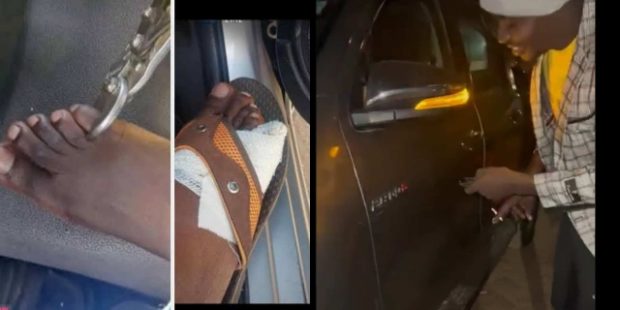The police in Zimbabwe has said it is investigating possible trafficking of human body parts, following reports that people are selling their toes in exchange for riches to people who use them for ritual purposes.
Frenzied reports these past few days have emerged on social media, with pictures being shared of people selling toes.
The toes are said to be sold for huge sums of money or exchanged for cars such as Toyota Hilux GD6s.
Unverified screenshots spreading around on WhatsApp, Twitter, and Facebook suggest that some sell their toes for as much as US$40,000 for the big toe, US$25,000 for the middle toe and US$10,000 for the tiny toe.
Memes and jokes have been spread across social media, with people laughing at pictures of some who have reportedly sold their toes for varying amounts of money.
While this might be hilarious to some and is light-hearted fun to others, authorities are concerned and police are now investigating the matter as the trading of body parts is illegal in Zimbabwe.
National Police spokesperson Assistant Commissioner Paul Nyathi said they were investigating the claims of human body parts being sold.
“Police are conducting investigations and we shall issue a comprehensive report in due course. The public must do things according to the laws of the country, especially when it comes to human body parts. That is why we are saying as the police we are monitoring the situation,” said Assistant Commissioner Nyathi.
He said those found soliciting, selling and buying human body parts will be arrested.
“The laws of the country are very clear when it comes to the issue of health and body parts, in terms of movement. The selling of human body parts in the country is illegal, whether people are advertising, soliciting, or offering in terms of the country’s law as espoused by the Criminal Law and Codification and Reform Act, Chapter 9:23 is very clear. Even the Constitution of the country is very clear in terms of human safety. Whoever is advertising or soliciting for human body parts for various reasons, they should be careful because they risk being arrested,” said Assistant Commissioner Nyathi.
The President of the Zimbabwe National Traditional Healers Association Mr George Kandiero said they were disturbed by reports of people selling their toes for ritual purposes.
“We are very concerned because some of these rumours then encroach onto our work. It then tarnishes the image of traditional practitioners, and it seems that we somehow know of these syndicates. If you hear of the amounts being spoken about, I don’t think there’s a single traditional healer to pay for toes at that amount,” said Mr Kandiero. He said the practice was dangerous and it affects future generations.
“It always been there; in Shona, it’s called kuchekeresa but we try to conscientise the public that it’s very bad and it has serious side effects that can affect future generations. This is because you are sacrificing your blood and your flesh and you don’t know what it will be used for. It definitely has some repercussions immediately as there are things that you are told to do and not to do, which you will eventually fail to do and it will have effects on your siblings and relatives,” said Mr Kandiero.
He explained what the exchange of body parts entails and the adverse effects of the ritual.
“Kuchekeresa is basically you sacrificing yourself, with parts of your body or your blood, or to take someone’s blood or someone’s organ to make rituals that then enrich you or make you have money, which you don’t work for,” said Mr Kandiero.
“You are then told not to do certain things and you might not enjoy your life. Other people are told not to sleep indoors, not to use to relieve themselves in the toilet and are supposed to use the bush. Other people are given certain hours when they should indulge in sexual activities and/or not to marry. When you, the perpetrator, are gone this is when relatives start consulting traditional practitioners who tell them what you have done and they tell them of problems such as bad luck, people who fail to get married or getting employed, getting sick or even dying in the family. They now have a task to undo what you did.”
Mr Kandiero said it is a risk to them as traditional practitioners to reverse such rituals and people should approach their organisation to get help.
“This process is very technical and needs a lot of money. They are called exorcists and they are the ones who reverse these things. We have those within our fraternity and they can assist. People think that since it is traditional practitioners doing this, they should do it for free.
No! They have to pay because it is a risk in indulging in such things as some might even lose or even carry some of that with them home. So, they need to be paid,” said Mr Kandiero, without giving a figure as to how much it would cost for them to exorcise.
Source: bulawayo24.com
 Home Of Ghana News Ghana News, Entertainment And More
Home Of Ghana News Ghana News, Entertainment And More





